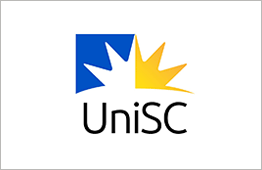
Preventing adverse events during paediatric cancer treatment:
A multi-site hybrid randomised controlled trial of catheter lock solutions (The CLOCK trial)
Reducing the rate of infections and blood clots in children being treated for cancer, to improve their journey through cancer treatment.
Investigators: Professor Amanda Ullman, A/Professor Andy Moore, Professor Paul Monagle, Professor David Eisenstat, Professor Robert Ware, A/Professor Joshua Byrnes, Professor Samantha Keogh, Dr Andrew Wood, Ms Sarah, Hunter, Dr. Adam Irwin, Professor Fiona Newall, Dr Joshua Wolf, Associate Professor Natalie Bradford, Ms. Patricia Kleidon, Ms. Rachel Edwards, Dr. John Roy, Ms. Philippa Howard (consumer), Ms. Eloise Borello, Ms. Victoria Gibson, Ms. Mari Takashima, A/Prof Susan Moloney, Ms. Michelle Noyes, Ms. Jordana Mclean, Ms Nicole Hensen, Ms Grace Wong, Ms Karli Williamson, Dr Karen McCleary
Partner Organisations and Investigators: Children's Health Queensland Hospital and Health Service; Gold Coast Hospital and Health Service; Royal Children’s Hospital, Melbourne; Sydney Children’s Hospital Network; University of Melbourne; Sunshine Coast Hospital and Health Service; Starship Children’s Hospital
Across Australia every year, children undergoing treatment for cancer experience more than 250 bloodstream infections, 70 deep vein thromboses and 300 blockages - all caused from their central line. This central venous access device (CVAD) is vital as it administers treatments such as chemotherapy drugs and supportive therapies including blood transfusions and antibiotics, however we need to prevent harm. When the CVAD is not in use, it is locked it with fluid. This fluid lock is an opportunity to prevent CVAD-associated complications.
In this world-first trial, the research team will evaluate the effectiveness of the CVAD lock solution compared to usual care to reduce infections, thromboses and blockages for children being treated for cancer. This is a Type-1 Hybrid effectiveness-implementation two-arm, superiority, effectiveness RCT which will compare the clinical-effectiveness of routine CVAD lock solutions with T-EDTA in comparison to normal or heparinised saline locks to prevent CVAD-associated complications (CABSI, thromboses, occlusions). Simultaneously, a mixed-methods implementation study will assess the acceptability, costs and implementation challenges of alternative CVAD lock solutions in paediatric cancer care, to prepare for translation of the intervention to practice. A 3-year recruitment period will occur across metropolitan and regional paediatric cancer care networks in Queensland, Victoria, New South Wales and New Zealand.
This project is funded by the Accelerating Collaborative Cancer Research (ACCR) grant from Cancer Council Queensland.
Video link: https://youtu.be/XJ3pPoH1abU









